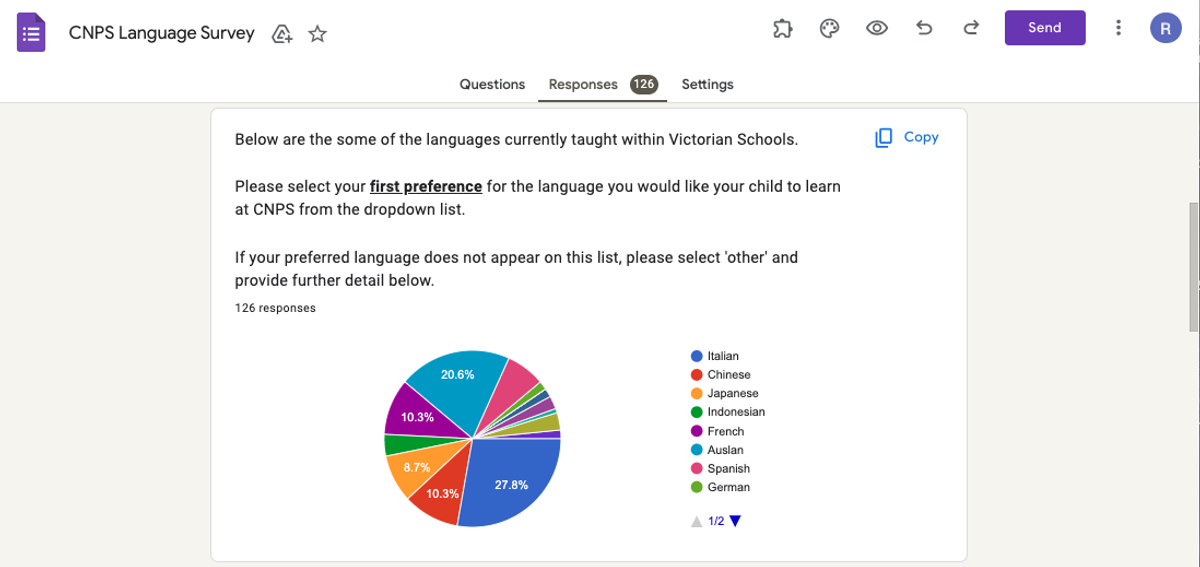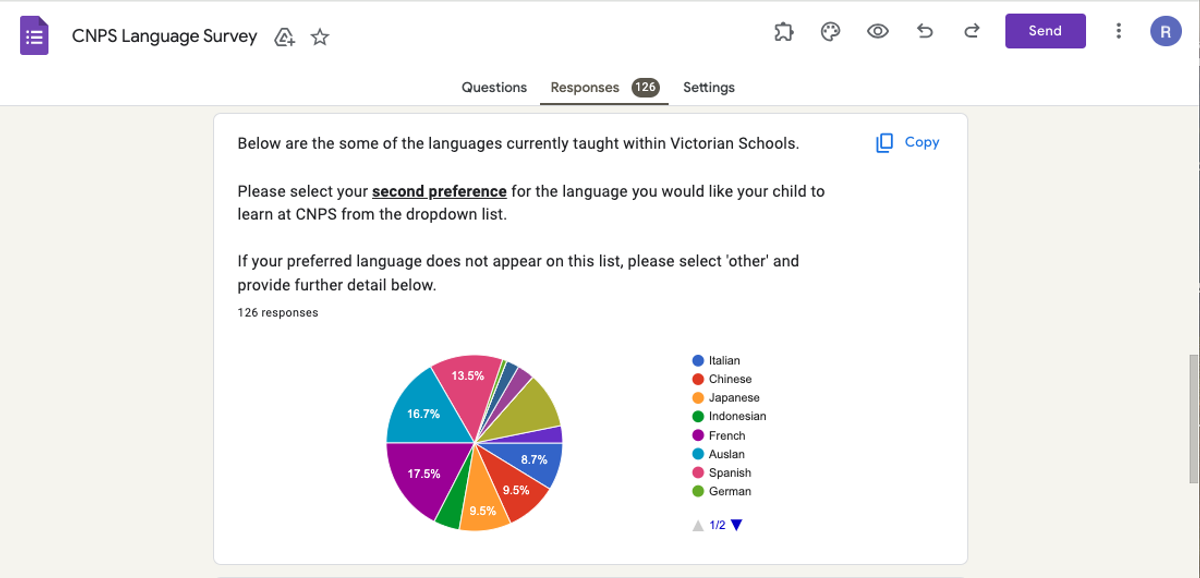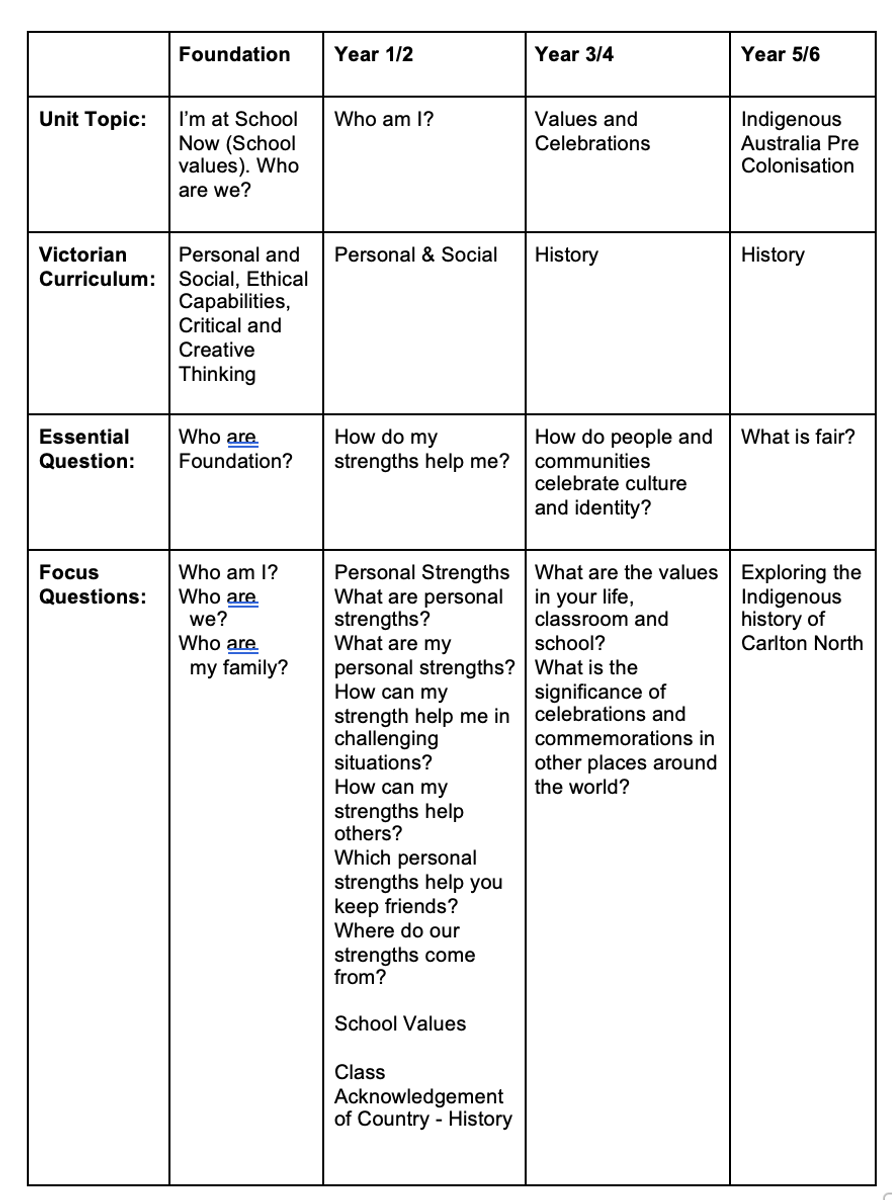Message from the Principal Team

Language Survey
At the end of last year, the Education Subcommittee conducted a survey of our families to determine the preferred language to be taught at CNPS. We received a great response to the survey, with 126 families responding. The School Council met last night and reviewed the survey results. Four languages were most preferred: Italian, AUSLAN, French and Chinese (Mandarin). In order to ensure that every family contributes to this very important decision, we are now conducting a final survey to determine the preferred language taught at CNPS.
Please complete the following survey to inform the future delivery of language education at CNPS. https://docs.google.com/forms/d/e/1FAIpQLSfVhCN_Y_TUc1tJO_XBDoPj9pb1qTW0Kwf5LVsZ3Dt5Wt55EA/viewform?usp=pp_url
Completion of the survey does not guarantee that preferences can be accommodated. Language teaching is heavily dependent on workforce availability.
Fete Preparations
The school has been buzzing with volunteers working frantically to prepare for the Great Lee Street Fete that is only one week away! For those families new to the school, the Great Lee Street Fete is referred to as the best day of the year by students, staff, CNPS families, and friends. Posters with QR codes to sign up on the volunteer roster have been posted around the school on Tuesday.
Inquiry for Term 1
Last week, our teaching teams met to plan the Inquiry learning for Term 1. We conduct Inquiry planning in Week 2 or Week 3 of each term to allow students to contribute to the planning with their questions and queries about the Inquiry Topics.
Whole School Big Ideas: Rights & Responsibilities
Enduring Understandings:
- CNPS Values - Respect - Inclusion - Trust - Resilience
- Who We Are - An inquiry into the nature of the self; beliefs and values; personal, physical, mental, social and spiritual health; human relationships including families, friends, communities, and cultures; rights and responsibilities; what it means to be human.
NAPLAN
NAPLAN is a national literacy and numeracy assessment that students in Years 3, 5, 7 and 9 sit each year. It is the only national assessment all Australian students have the opportunity to undertake. As students progress through their school years, it’s important to check how well they are learning the essential skills of reading, writing and numeracy.
NAPLAN assesses the literacy and numeracy skills that students learn through the school curriculum and allows parents/carers to see how their child is progressing against national standards over time. NAPLAN is just one aspect of a school’s assessment and reporting process. It doesn’t replace ongoing assessments made by teachers about student performance, but it can provide teachers with additional information about students’ educational progress.
NAPLAN also provides schools, education authorities, and governments with information about how education programs work and whether young Australians are achieving important educational outcomes in literacy and numeracy.
Supervision of Students Before and After School
Our school staff are out in the playground on yard duty at 8:45 am in the morning and until 3:45 pm in the afternoon. Any students that are in the playground unsupervised outside of these times are at risk. In the past, we have had unwanted people who are not connected to the school pass through the school grounds in the early mornings and after school. We ask that if your child does need to be on the school grounds outside of school hours that you please book them into Before and After School Care to ensure their safety. Thank you in advance for your consideration as we work together to keep our children safe.
Staff Professional Learning
On Tuesday, Carlye, Billy, and James attended day 1 of the Teacher Excellence Program.
The TEP is a year-long professional learning program for highly skilled teachers, supporting and challenging them to become even better teachers. Through the program, teachers analyse their teaching practice to deepen content and pedagogical content knowledge in and across the key discipline areas. They access contemporary, evidence-informed research and apply this learning to their students’ learning needs. Teachers utilise a practitioner inquiry approach to deepen their knowledge, capability and confidence to teach even more effectively in their context.
Rachel Corben, Erin Brown and Jane Bilby



